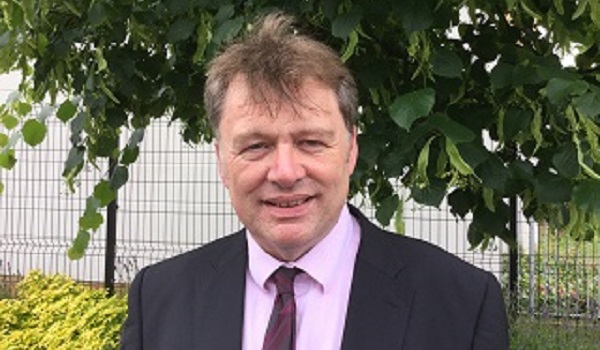Recharging policing
Years of under-resourcing mean the CPS is no longer able to provide timely charging advice. It’s time the power to do so was returned to the police say Chief Constables Craig Guildford, John Robbins and Stephen Watson.
To improve justice for victims, we are asking for the right to charge suspects, in straight forward cases, to be returned to the police.
If something is broken, then we should fix it. If we can’t fix it, then we should replace it. The ability for the Crown Prosecution Service (CPS) to give timely charging advice (namely while the suspect is under arrest and in the cells) is broken; not because of anything the CPS has done, but because they do not have the resources or the people to do what they used to. We have tried to fix it together over the past two years, but the plasters are not sticking and things are getting worse. So for the sake of victims, witnesses and all in the criminal justice system, we need to replace it now, by restoring to the police the ability to charge most offences whilst suspects are in the cells.
As metropolitan chief constables with decades of policing experience between us, we recall having joined policing shortly after the introduction of the Police and Criminal Evidence Act (PACE) with grumbling detective colleagues still mourning the demise of ‘Judges Rules’. Like PACE, the creation of the independent CPS was exactly the right thing to do. However, the tortuous means of progressing cases to court as pertain currently is absolutely unprecedented. There is a need for a whole-systems review of the criminal justice system (CJS), perhaps under the auspices of a Royal Commission, but right now there is also a need to fix something. Police custody sergeants used to decide on who needed charging; the clue is in the title ‘custody’ and ‘sergeant’.
Over the past 20 years there has been a series of moves away from police Custody Sergeants making charging decisions to the current system where only the CPS can decide, save in the most minor cases. Police officers now have to tell victims every day that they need to seek CPS ‘permission’ to charge. Initially this worked when we saw a CPS lawyer in many police stations, during office hours, who would make decisions. However as resources and the CPS operating model changed through austerity, this service morphed into a telephone advice model called CPS Direct. It would be fair to say that the majority of frontline police officers, ourselves included, were unequivocally and universally unimpressed with how time consuming and how bureaucratic that system became. Then two years ago, ahead of the Covid restrictions, the CPS temporarily suspended the ability to get telephone advice because of their resourcing issues. That situation still remains and there is no solution in sight.
The result is officers having to tell victims and witnesses that they have been caused to release the suspect “under investigation” or at best “on bail”. This does nothing to help victims and witnesses, build their confidence or feeling of safety and does nothing to deliver the notion of “speedy justice”. The resultant weight of increased bureaucracy has the definite effect of reducing the productivity of police officers. The Home Secretary’s Police Productivity Review, led by Sir Stephen House, has the criminal justice system in its sights and will hopefully provide a tangible evidence base for change.
However, we would submit that the answer is simple. The CPS are unable and are likely always to be unable to make charging decisions whilst the suspect is in the cells. So the Director of Public Prosecutions (DPP) needs to give the right back to the police to make charging decisions there and then in far more cases: domestic abuse, harassment, burglary, robbery, theft, knife crime, violent crime. We used to do this, officers want it, victims want it, defence lawyers want it, and we are sure the Courts do too, but the system keeps saying no. We are trying to help free up CPS and partner agency work to do what they should be doing – prosecuting, not administration.
Where is the evidence to support our call? In March 2015, 16 per cent of crimes were resolved with a charge and/or summons and now it is 5.6 per cent (Crime Outcomes in England and Wales 2021/22: GOV.UK). This is not because police have suddenly become less effective. It is because of so-called “attrition” where victim disengagement occurs and results in fewer charges due to time delays and a feeling of being unsupported by a seemingly faceless and insensitive system. It is ironic that this reduction has also occurred at a time when officers are better trained, more focused, there are more of them; and they have more time to deal with those in custody.
Recent coverage of how charge rates for a variety of criminal offences have declined over time in both binary number and percentage terms against recorded crime (a dangerous comparator when considered singularly alongside the National Crime Recording Standards) shows there has to be a more efficient and effective method of supporting the system. Well this is it, return the right to the police to charge at source. Simple decisions should not be scary or challenging. It is okay to acknowledge things have changed, that the CPS do not have the resources they used to.
Parliament made a very important decision to establish the CPS as the public prosecutor in England and Wales. This is a key tenet which enshrines the concept of prosecutorial independence. Successive iterations of ‘Director’s Guidance’ from the DPP mandate how police forces must compile files of evidence, what offences are ‘chargeable’ either directly, whilst a person is in police custody, or via a postal method for those persons dealt with voluntarily and reported for summons. That should all continue.
The CPS like many other public bodies, including the police and courts, had to change through austerity, we all get that and it led to a commensurate reduction in capacity. Yet we appear to be trying to do the same things, despite some elements of the system being broken through no fault of any agency. Post-2010 through to the Covid years, it would be fair to say that charging timeliness has been a challenge. In addition, the level of pre-charge complexity, digitisation initiatives and various disclosure mandations have added to that which an officer now needs to submit in order to obtain a decision (and these need changing too). Despite some contemporary financial uplift and a shift in charging advice surrounding serious sexual offences, all too often our CPS colleagues appear to be far too thinly spread. Despite their best efforts, turning around a decision can often take much longer than they would like, let alone being able to provide that decision whilst the suspect is in the cells.
The CPS should always conduct all criminal prosecutions. They should be allowed to concentrate their skills upon the most challenging and complex of cases which need to naturally make their way to the Crown Court. They should continue to own and uphold the standard for what is ‘the charging threshold’.
Add to this the backlog work currently being undertaken in the magistrates’ and Crown Courts (the latter of which incidentally were running a sizeable case backlog pre-Covid), the national Police Officer Uplift Programme, the national Violence Against Women and Girls (VAWG) action plan, custody time limits and the difficulties of local CPS recruitment in some areas and one can’t help but appreciate the scale of the challenge.
So we come back to the simple solution to the problem; allow the police to charge more offences, giving greater confidence to victims and witnesses, allowing files and prosecution cases to be built more quickly and let us all start providing swifter justice. We’ve done it before, and we can easily do it again. In this case, returning to the old ways of doing things represents a good example of a return to common sense policing.
Craig Guildford QPM VR DL, Chief Constable West Midlands Police
John Robbins QPM DL, Chief Constable West Yorkshire Police
Stephen Watson QPM, Chief Constable Greater Manchester Police






